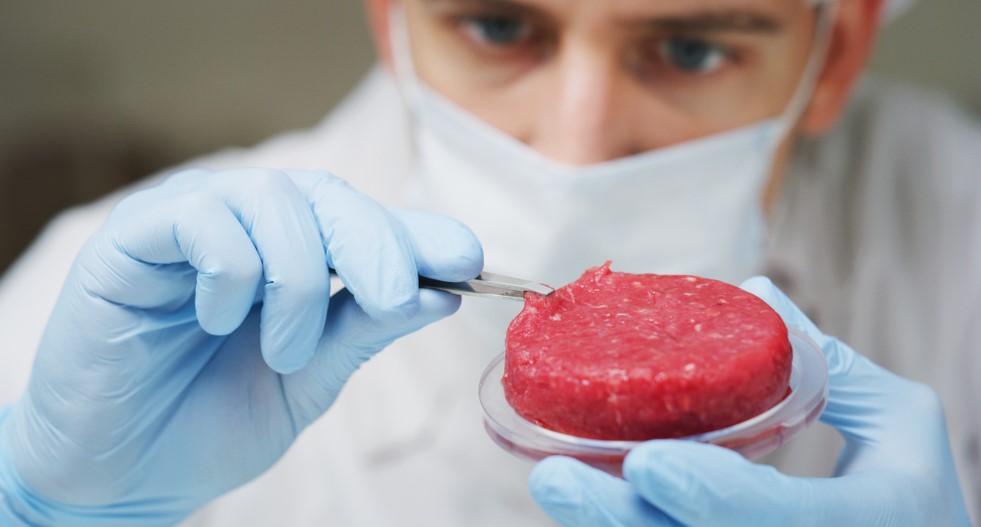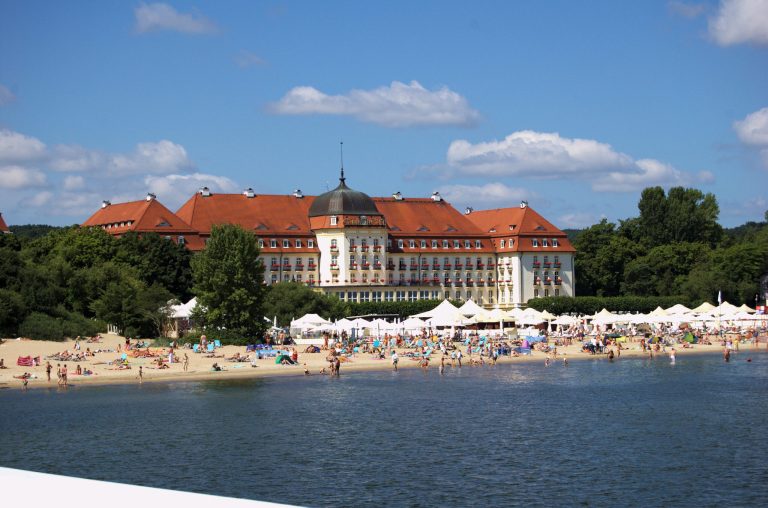Poland’s first lab-grown meat firm gets state grant

The first Polish company to produce cultured meat – which is grown in a laboratory from animal cells without the need to raise and kill livestock – has received a 9 million zloty (€2 million) grant from a state agency to support and expand its work.
LabFarm, which this year presented a prototype of its chicken meatball, claims to produce “clean, genuine meat” that is “also safer [than traditional sources] because it is free of antibiotics and contaminants”.
“The only difference is that it is grown outside the body of an animal, which does not have to sacrifice its life, but only lends us a few of its cells,” they add.
Proponents of cultured meat see it as a way of avoiding the environmental impact and ethical concerns caused by farming. However, critics have raised concern about artificial “Frankenstein foods” and the threat they pose to traditional producers.
LabFarm, which is currently the only company in Poland to produce cultured meat, was founded in 2021. Since then, its founders and main investor – the owner of a traditional poultry business – have invested over 10 million zloty of their own funds in the businesses.
Now, the National Centre for Research and Development (NCBiR), a state agency, has awarded the firm 9 million zloty in a grant that began this month.
“Obtaining the grant means that LabFarm can implement a research plan consisting of increasing production capacity and scaling up production, optimising bioprocesses, working on proprietary recipes for nutrients, structuring the food product and increasing employment,” wrote the firm.
Sorry to interrupt your reading. The article continues below.
Notes from Poland is run by a small editorial team and published by an independent, non-profit foundation that is funded through donations from our readers. We cannot do what we do without your support.
Initially, LabFarm aimed to start industrial production this year but had to postpone their plans by two to three years. “It is like preparing an expedition to the moon,” Wiesław Macherzyński, chief operating officer and co-founder, told Forbes magazine.
Earlier this year, the firm presented a prototype of its chicken meatball at ProVeg New Food Forum, a Polish edition of the New Food Conference, the first and largest such event in Europe dedicated to alternative sources of protein.
“In the last three months we have come out of the test tube,” Macherzyński told Forbes. “Previously we looked at the product under a microscope, now it was time to throw it into the pan”.
Zamiast ferm drobiu – sterylne laboratorium, które może znajdować się nawet na osiedlu mieszkaniowym. Prototypowa partia kurczaka z probówki niedawno po raz pierwszy trafiła na patelnię ➡️ https://t.co/EyKcReR6m3 pic.twitter.com/p5nIHR2B9R
— Forbes Polska (@ForbesPolska) August 6, 2024
So far, however, the cost of producing 100 grams of lab-grown chicken meat has amounted to 70,000 zloty (€16,212).
The company creates its product in bioreactors – glass and stainless steel tanks simulating animal body conditions – with a total capacity of 11 litres, a figure that “can be compared to the body volume of one sheep,” Stanisław Łoboziak, the firm’s chief technology officer and co-founder, told Forbes.
For comparison, the largest bioreactors at American cultured meat firms have a capacity of 250,000 litres and can produce two tonnes of lab-grown meat per year.
The world’s first cultured meat restaurant „The Chicken” is opening in Tel Aviv, Israel!
It’s free if you manage to get a table. Sales are expected in 2021 or 2022. With many prototypes over the past 7 years, test kitchens are a big step forward.https://t.co/WquwpBN1D8 pic.twitter.com/fyQqGVGXTr
— Jacy Reese Anthis (@jacyanthis) November 9, 2020
At the beginning of July, LabFarm joined Cellular Agriculture Europe, an international coalition of companies committed to building a more sustainable food production chain. Its members will co-create the industry’s production standards, educate the public, and build confidence in the new food category.
LabFarm has also been invited to work on the Polish government’s “Concept of National Development 2050” document.
There has, however, been a backlash against lab-grown meat in some countries. Last year, Italy’s parliament voted in favour of a ban on the production, sale or import of such products, with the government saying it was defending the country “from the social and economic risks of synthetic food”.
Poland has in recent years seen a rise in the sale of plant-based meat alternatives (a different product category to cultured meat). Its capital, Warsaw, also regularly ranks among the most vegan-friendly cities in the world.
„Italy Bans Lab-Grown Meat to Protect Farmers and Culinary Traditions” https://t.co/jC20hWIT7v
— Peter Schweizer (@peterschweizer) November 20, 2023
Main image credit: LabFarm (press materials)

Agata Pyka is an assistant editor at Notes from Poland. She is a journalist and a political communication student at the University of Amsterdam. She specialises in Polish and European politics as well as investigative journalism and has previously written for Euractiv and The European Correspondent.






